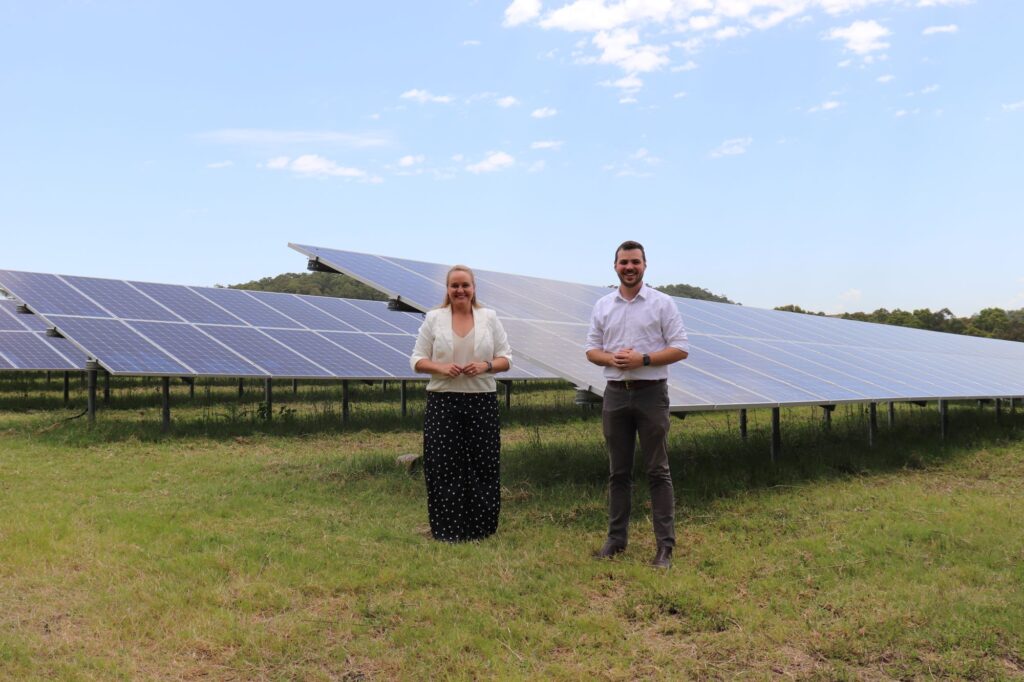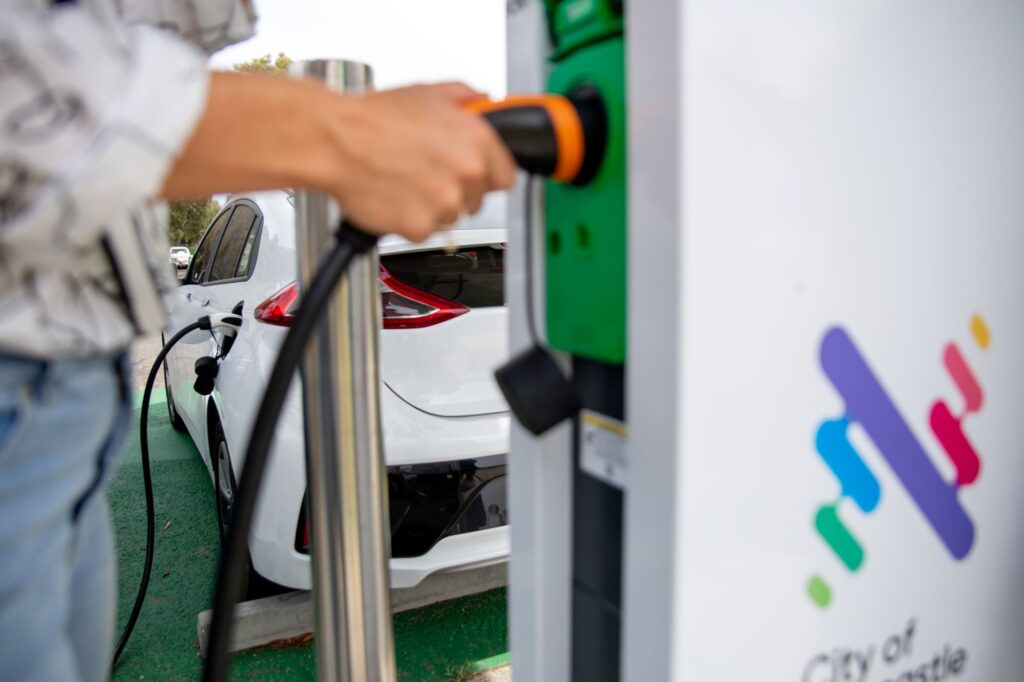Dedicated to driving local environmental and financial sustainability in the City of Newcastle, Australia
This piece was written by Nuatali Nelmes, Lord Mayor of Newcastle, Australia, and is part of our Sustainable Cities series, done in collaboration with Impakter, an online magazine aimed at connecting the knowledge hub with the public, using the force of transparent and impactful journalism.
The City of Newcastle Council has a long history of delivering projects and initiatives to protect and enhance our local environment and drive sustainability, whilst providing financial savings for our community. This is done in response to the three priority areas in our Community Strategic Plan – action on climate change, nature-based solutions and a circular economy.
Taking renewable energy to new heights
Newcastle first trialled electric vehicles in 2011, and soon after we delivered the Hunter Energy program, assisting 350 local businesses to undertake energy upgrades, reducing electricity use by 5.6GWh and saving over $1.1 million each year. Since 2015, City of Newcastle Council has installed 15 rooftop and carpark solar photovoltaic (PV) systems and five battery energy storage systems, totalling 818kW and generating approximately 1GWh of renewable energy each year. Energy upgrades of seven major Council facilities in the last 10 years have resulted in reduced electricity use of 1.45GWh and savings of over $245,000 each year. Between 2020 and 2022, 14,3480 main road streetlights in Newcastle were upgraded to LED luminaries.

Adopting a circular economy approach pays
The installation of a bioenergy facility at the City’s Waste Management Centre in 2009, where biogas is harvested from the landfill site and processed to generate electricity, and with an installed capacity of 2.2MW, exports 17MWh of electricity a year, equivalent to powering 3,000 homes. The opening of a new resource recovery centre at the Waste Management Centre in 2019, which diverts around 3,000 tonnes of waste from landfill a year through the recovery recyclable materials, continues to catalyse our local circular economy.
Reconnecting our people with nature
Over the past decade, we have rehabilitated more than 3km of creek lines within the city’s largest urban catchment, regenerated 2,210 hectares of our bushland, planted over 15,000 public street and park trees and added 1.15 million native plants as part of our bushland and coastal rehabilitation projects. Over 10,000 local community members have participated in our Natural Connection community program, through tree planting days, citizen science and Landcare, whereby 150 volunteers contribute 4,500 hours a year to bush regeneration activities. This all aligns with our commitment to being a proud CitiesWithNature city.
Responding to the climate emergency
In 2019, the City of Newcastle Council formally committed to the goals of the Paris Agreement and declared a climate emergency, to pursue efforts to limit global warming to 1.5°C above pre-industrial levels. We are a founding member of ICLEI – Local Governments for Sustainability, and I chair the Global Covenant of Mayors for Climate and Energy’s Oceania Steering Committee.
In 2020, Newcastle was the first local government in Australia to utilise 100% renewable energy for its operations, through the installation of a 5MW solar farm on a capped landfill cell at our Waste Management Centre, and a renewable energy power purchase agreement with a 270MW wind farm in the New England region of New South Wales.
Newcastle’s Coastal Management Program was the first certified in the state of New South Wales, with mass sand nourishment the key focus of the program. Following in its footsteps will be two other coastal repair programs, to protect the remaining coastline and estuarine environments of Newcastle. Through its coastal, flood risk and bushfire management programs, Newcastle is responding to the impacts of climate change and building resilient urban and natural areas, and communities.
The Newcastle Environment Strategy, adopted in October 2023, is City of Newcastle Council’s next 10-year roadmap to achieving a sustainable Newcastle.
Through our Environment Strategy, we’ll continue to roll out public electric vehicle (EV) charging infrastructure. The planned installation of 32 new electric EV charging ports across 11 locations will increase City of Newcastle Council’s public EV charging infrastructure network to 48 EV charging ports across 15 locations in the Newcastle Local Government Area.
Through the climate action plan, we’ll further invest in solar PV and battery storage, continue to electrify our vehicles, plant and equipment (City of Newcastle’s operations largest remaining source of greenhouse gas emissions), and expand our urban forest through the delivery of our street and park tree program. Our strategic priorities are the enhancement of our biodiversity corridors, the creation of a blue-green grid linked to active transport routes and the delivery of community and business programs focused on energy efficiency, accessing renewable energy and electrification.
Having successfully navigated previous economic transformations, Newcastle must position itself to take full advantage of an emerging low carbon economy and our city’s transition to net zero, by promoting low emissions technologies, large scale renewable energy sources, like offshore wind, green hydrogen and ammonia export hubs, and green metal and minerals processing, and become an international leader in renewable energy and associated industries. This transition will require significant capital investment and an adaptation of skills, infrastructure, and services. We are committed to taking this path and dedicated to driving local environmental and financial sustainability.




